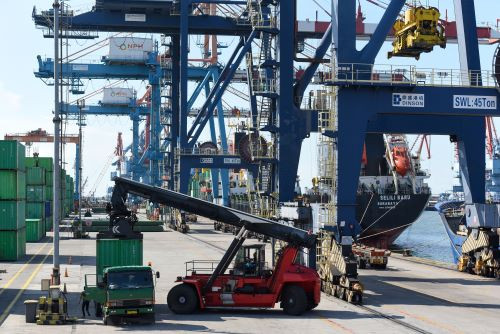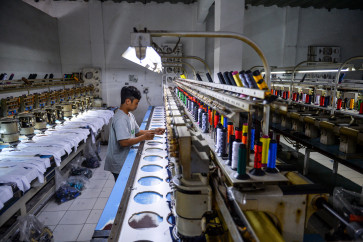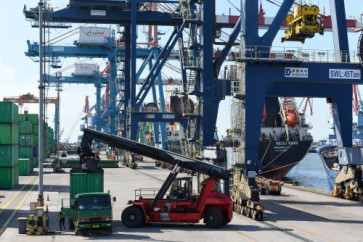Popular Reads
Top Results
Can't find what you're looking for?
View all search resultsPopular Reads
Top Results
Can't find what you're looking for?
View all search resultsSurfing the slowing global economy: How has Indonesia fared so far?
Indonesia's economy is expected to maintain resiliency amid the current global slowdown, supported by strong household consumption, steady investment inflows and a government spending boost.
Change text size
Gift Premium Articles
to Anyone
T
he global economy is facing a challenging period this year, characterized by a notable slowdown that poses significant risks and uncertainties for emerging markets.
According to the July 2024 World Economic Outlook Update of the International Monetary Fund (IMF), global economic growth has moderated due to a combination of factors, including persistent inflationary pressures, tightening financial conditions and geopolitical tensions. The global slowdown has profound implications for emerging economies, and Indonesia is a prominent example of a country navigating these turbulent waters.
The latest World Economic Outlook Update projects a deceleration in global growth to 3.2 percent in 2024, down from 3.3 percent in 2023. The slowdown is a consequence of the cumulative impacts of monetary tightening by major central banks aimed at curbing inflationary pressures from geopolitical conflicts and supply chain issues.
Inflation remains a persistent concern as high consumer prices in many countries prompt central banks to maintain restrictive monetary policies. Financial markets are also feeling the impacts through increasing volatility, further dampening investor confidence and economic activity.
Emerging economies, including Indonesia, are particularly vulnerable to global economic fluctuations, as they often rely heavily on exports, foreign investment and capital inflows.
The consequences of this global deceleration for Indonesia are multifaceted. Its impacts so far have been seen in the trade and investment channel. The slowdown in major economies, such as China and the United States, has led to declining demand for our main exports like palm oil, textiles and minerals.
The resulting decline in export revenue in turn puts pressure on Indonesia’s trade balance as evident in the country’s trade surplus, which reached just US$15.4 billion in the first six months of 2024, lower than last year’s surplus of $19.9 billion.


















